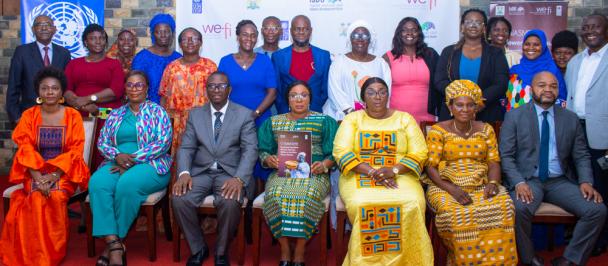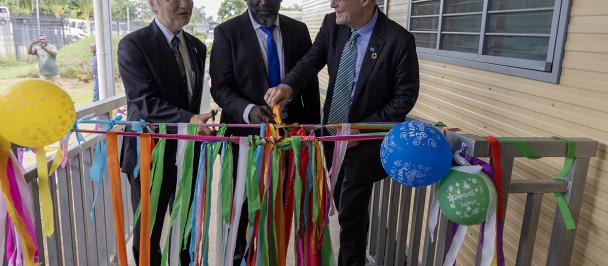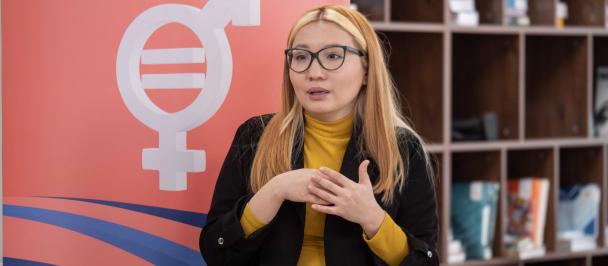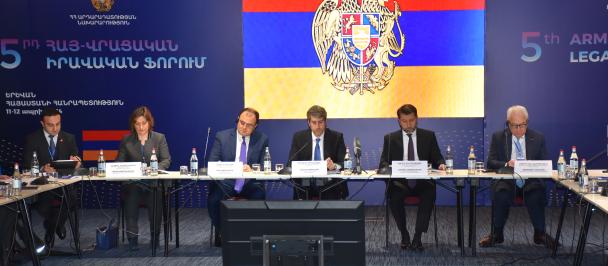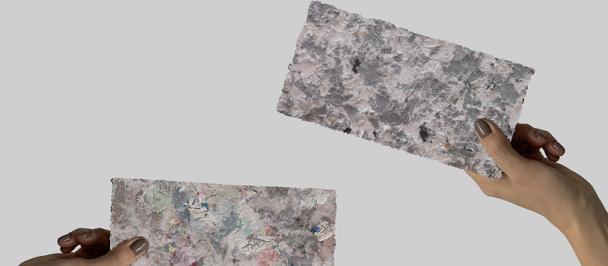Written by: Olivia Macri, Programme Support Officer, UNDP Lao PDR
Inleusa's Story: Living with Change in Lao PDR
June 22, 2022
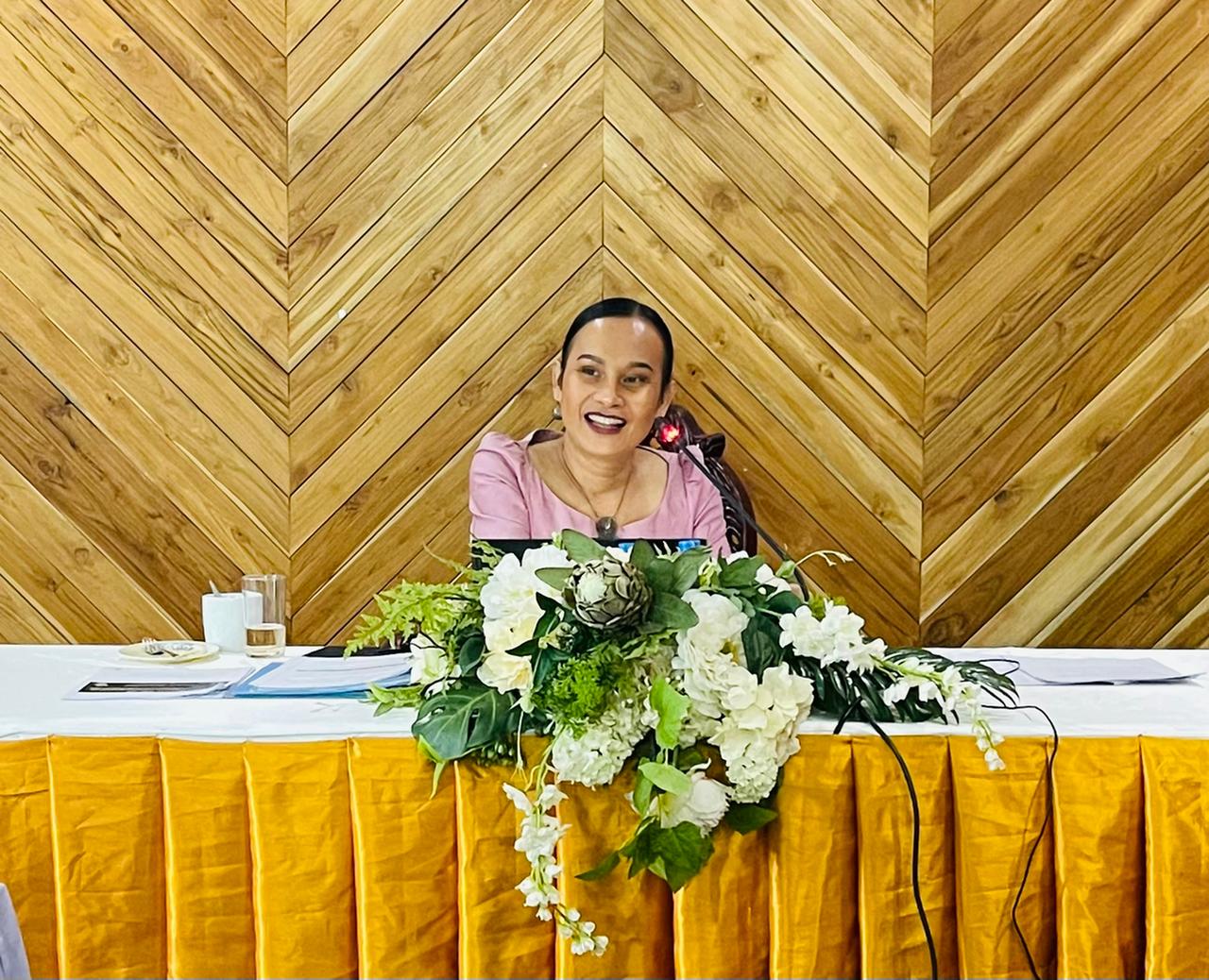
Dr. Inleusa Basengkham sharing her remark at one of the events on LGBTQ+
Inleusa Basengkham’s upbringing was one that many young people shared across Lao PDR. The youngest of seven children, Inleusa grew up with three older sisters and three older brothers, and was instilled with traditional values from a young age. Inelusa was encouraged to have a good education and pursue university to access a good job, and learnt to cook and take care of the household. There was, however, something unique about Inleusa’s upbringing, in that she was raised a boy, and was encouraged to do all the things a young boy should do. But Inleusa never felt like a boy, she felt like a girl born in a boy’s body. Today, Inleusa has overcome many barriers to receive her PhD, work with many international organizations and support other members of the LGBTQI+ community in Lao PDR in being who it is they feel they are.
Early at school, she was bullied and mocked by her classmates, especially by the boys’ groups who judged her as being too feminine. She remembers, “if I would go to the toilet, they would come at me, and try to humiliate me. It was very scary, and I had no escape. I wanted to stay with the girls, because I felt secure and closer to them, but sometimes we had to go in groups and the class was divided between the boys and the girls. Because of my gender at birth, I had to go with the boys even though I felt I didn’t belong and knew I would face mockery”.
For many years, Inleusa repressed her feelings about who she really was, leading to severe depression. “I had been living a miserable life for more than three decades before I made the decision to transform my body, I had never felt complete since I could remember, until I reached the point where I needed to take the decision even though it was a tough decision”.
The transitioning process in physically changing gender is very long and requires comprehensive mental and physical medical care. With the relief of understanding and accepting her transgender identity, came the fear of rejection by society. Inleusa feared she would lose her professors’ support, prevented from finishing her doctoral degree and most importantly, she feared being rejected by her family, especially her parents. But Inleusa never received the full support she needed, navigating much of this life-changing event alone.
Inleusa, as many other transgender people, felt she needed to overperform her entire life out of fear of not being accepted. This attitude of needing to prove her worth stayed after transitioning.
Inleusa spent years studying hard and eventually obtained her masters in Japan and PhD in Portugal. However, upon returning to Laos, Inleusa remained unemployed for over a year, and the feelings of rejection began to resurface. “People need to understand that discrimination occurs everywhere and to everyone. For me, being a transgender woman living in the country where a lot of people are still not comfortable to accept the diversity of gender, is still difficult for me and I hope people will become more aware of how harmful this discrimination can be, especially for young people”.
As the first and only transgender women in Lao PDR with a PhD, she wants to lead by example to show other young transgender women, a bright future is possible and give them hope. One hope for Inleusa is for Lao people to accept the LGBTQI+ community in society, and understand it is not something that comes from a Western influence, but is a part of what makes up Lao PDR, a dynamic and diverse population.
The lack of support systems for LGBTQI+ people and their families contributes to perpetuating stigmatization resulting in discrimination, rejection and sometimes violence, causing life-long negative impacts on LGBTQI+ people. What is critically missing is data and research into the real lived experiences of LGBTQI+ living in Lao PDR, like what Inleusa has and continues to experience.
To strengthen support for LGBTQI+ people, UNDP is working to advance the rights of LGBTQI+ people, and other under-represented groups, starting with a joint project with Proud to Be Us Laos, with a focus on business as a catalyst for diversity and inclusion, dialogue on law and policy reform options for non-discrimination, and research into the lived experiences of LGBTQI+ people.
On 1 June 2022, to mark the start of Pride month, UNDP, the Ministry of Justice and Proud To Be Us Laos launched the first ever LGBTQI+ Non-Discrimination Dialogue gathering partners from the government, civil society, academia and the LGBTQI+ community, to discuss the legal and policy avenues in Lao PDR to better protect LGBTQI+ people from discrimination.
Later this year, UNDP and Proud To Be Us Laos will launch the ‘Being LGBTQI+ in Lao PDR’ report, which aims to build the understanding in Lao society of the challenges and barriers faced by LGBTQI+ people, and begin to identify ways we can work together and remove these barriers to ensure that Lao PDR’s leverages its greatest strength in its continued social and economic development: its diversity.
Inleusa shares her hope for the future: “Gender Equality in Laos will be achieved only when we include LGBTQI+ issues into the our human rights policies and have strong laws to protect these people. They should have equal rights to be educated and free from discrimination. And they deserve equal opportunities to fulfil their potential and pursue their goals. To do so, education and awareness will be key for us to succeed”.
The views expressed in this article are those of the author alone and not the United Nations Development Programme.

 Locations
Locations